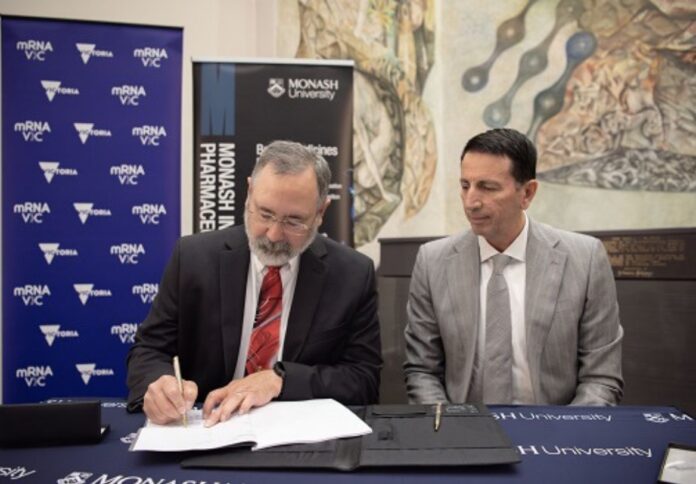
Monash University and Moderna have partnered to establish the Monash-Moderna Quantitative Pharmacology Accelerator (MMQPA), a program aimed at fostering local innovations in mRNA medicines, including therapeutics and vaccines.
Created through a $3 million investment by Moderna and in-kind contributions by Monash, the MMQPA program is a five-year initiative aimed at enabling Australia to accelerate the development of safe and effective novel mRNA medicines for a broad range of diseases by delivering quantitative pharmacology systems that will make the process more efficient.
The accelerator program will be headquartered at the Monash Institute of Pharmaceutical Sciences (MIPS) in Parkville— home to some of the nation’s top quantitative pharmacology experts equipped with extensive experience in model development across a range of diseases, especially infection and tropical diseases.
The MMQPA is the inaugural Research & Development Accelerator initiative from Moderna’s Global R&D organisation in Australia and will provide the Monash-Moderna team with access to globally derived preclinical and clinical data from proprietary Moderna programs and new insights from cutting-edge mRNA scientific data, Monash said in a media release.
“This partnership is a great example of world-leading researchers and industry coming together to create a critical capability which will advance mRNA medicines to patients and strengthen Australia’s resilience to a range of diseases and future health emergencies,” said Professor Rebekah Brown, deputy vice-chancellor and senior vice-president.
Quantitative pharmacology helps describe and predict how medicines will work in the human body by leveraging mathematical computer models.
Doron Ben Meir, deputy vice-chancellor and senior vice-president at Monash, said the partnership with Moderna marks a significant milestone in addressing a major gap in Australia’s current mRNA development environment.
“Quantitative pharmacology is hugely impactful across the entire drug discovery pipeline – from the early stages right through to regulatory submission and even analysis of real-world performance of medicines. This collaboration offers the potential to create a world-class and globally rare mRNA quantitative pharmacology capability based right here in Melbourne,” said Ben-Meir.




















